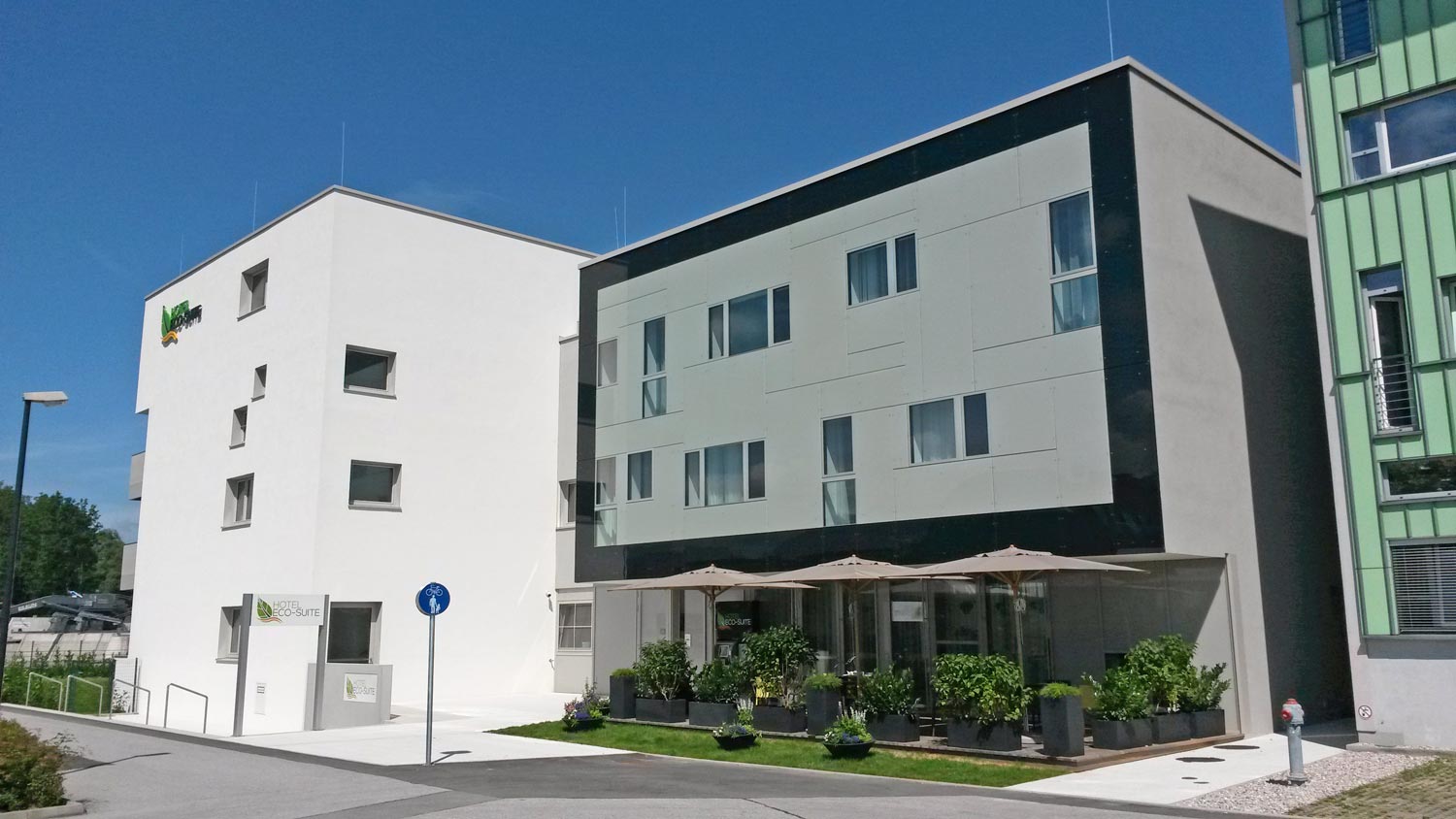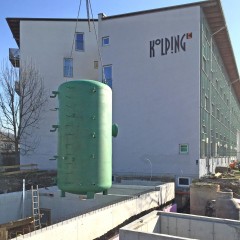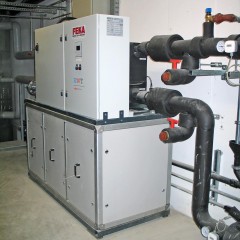In 2016 the Eco-Suite Hotel, an extension to the Salzburg Kolpinghaus, was opened. The existing building, which functions as a hostel for young people and as a seminar facility, has been supplemented with a sustainable-design new building with 44 hotel rooms. The extension features a pioneering energy strategy intended to make use of the energy available on the spot in running the entire complex. The building envelope has been implemented to passive-house standard, a convenience ventilation system with heat and moisture recovery has been installed, and energy-efficient LED luminaires and energy-saving appliances have been employed. PV modules with a total capacity of 29.5 kWp are mounted on the roof of the new extension.
Heat recovery from sewage
In the energy system a facility to recover heat from sewage plays a key part; this is sufficient to cover the extension‘s entire thermal energy consumption (heating and hot water), and surplus energy can be delivered to the existing building. The average sewage temperature in a hotel is around 22 to 23°C. Heat is extracted from the sewage in the evaporator section of a brine/water heat pump, cooling the sewage down to around 5°C; heat is then available in the condenser section at a temperature of more than 50°C all year round. The heat recovery system also uses the sewage from the existing building as a source of heat. The heat is routed through a central layered-storage tank and distributed throughout the entire complex for space heating and supplying hot water. The heat recovery system extracts roughly 270,000 kWh of heat per annum from sewage; about one-third of this is used in the extension, two-thirds in the existing building.
Step by step to energy surplus
As part of this project various options for developing the complex toward achieving an energy surplus have been investigated. A step-by-step plan spanning twenty years envisages using more efficient lighting and appliances to save electricity, for instance, or generating more electricity by installing PV modules on the façade of the existing building as and when it is upgraded at some future date. The idea of placing a floating hydroelectric mini-generator downstream was also given consideration, as were the economic advantages of storing electricity.
CONTACT
Robert Freund, Energie.Effizienz.Beratung
robert-freund@gmx.net
https://nachhaltigwirtschaften.at/de/hdz/projekte/energiepaket-kolpinghaus-jugendwohnheim-und-sommerhotel.php


